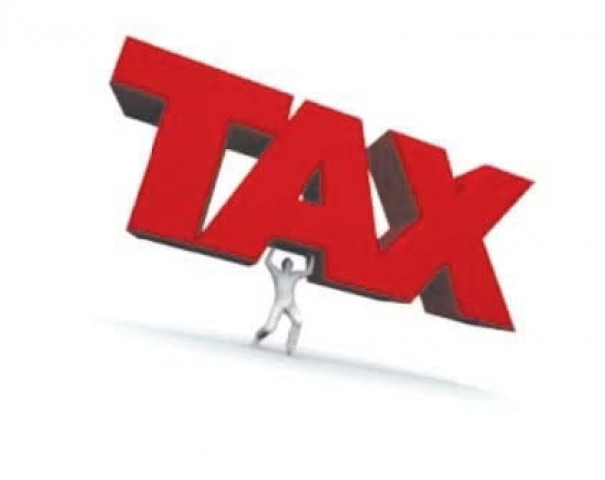Tax to push up inflation by less than 1%: ministry
Official study sees inflation a mere 0.63% above the target by end June.

Tax to push up inflation by less than 1%: ministry
A finance ministry source told The Express Tribune that full implementation of the GST bill will only result in a 0.63 per cent increase in inflation as measured by Consumer Price Indicator (CPI), an index used to measure change in the prices of goods and services.
The GST bill proposes tax levy on an additional 600 items, which have been exempted due to political pressures. In the post-GST implementation scenario the finance ministry has estimated that by end June inflation will remain at 14.63 per cent – 0.63 per cent above the revised target. Last month, the CPI-based inflation was recorded at 15.4 per cent.
The inflationary impact of the GST has been jointly worked out by the finance ministry and the Federal Board of Revenue (FBR). The impact exercise is carried out on the CPI basket that consists of 374 essential items. The items not included in the CPI basket which will be impacted by the bill are either already taxed or considered not essential.
The estimates support the government stance that opponents with vested interests are using inflation as an excuse to prevent the tax system overhaul. The government’s coalition partner Muttahida Qaumi Movement (MQM) has announced its opposition to the bill and has vowed to block it in the parliament, terming the bill anti-poor.
MQM senators abstained from the initial two meetings of the Senate’s standing committee on finance that unanimously approved the bill. The committee met again on Thursday for 20 minutes and endorsed its earlier report which will be tabled to the Senate for approval. In the final report the MQM, Jamaat-e-Islami, Pakistan Muslim League-Nawaz and Awami National Party attached dissenting notes. These, however, will not impact the unanimous approval.
The report states, “After agreeing to the unanimous recommendations some members desired that their principled positions be reiterated in the committee report”.
“There will be only a marginal inflationary impact of this bill because of reduction in the tax rate (from 26 per cent to 15 per cent) but the real problem is that the businesses will not pass on the impact (of the tax reduction) to the consumers,” said Dr Ishfaque Hasan, a renowned economist. He said most people opposing the bill are doing so because it will lead towards documentation of the existing black economy in the system. The underprivileged strata’s major spending is on food, which has been exempted from the levy, said Dr Ishfaque.
The finance ministry source said that the real danger is the strong inflationary expectations and imperfections in the market system, mainly weak administration that may provide a window to opportunists who will increase prices of their products by making GST an excuse.
“In the worst-case scenario if the government fails in taming down the inflationary expectations it will run into a maximum 2 per cent hike in prices of goods and services,” the finance ministry source said.
According to the government working, as much as 55.9 per cent of the CPI basket will remain unaffected by the levy. Food items account for 40 per cent of the basket. The authorities divided the 374-item basket into 92 broader categories. Twenty-nine categories remain exempted and most of these are food-related. Under the new bill only packaged food items will be taxed; which form a mere 0.4 per cent of the total basket.
Under the bill, there will be a universal tax rate of 15 per cent compared to the differing rates ranging from 17 to 26 per cent under the existing system. This rate reduction will counter some of the negative impact. The assessment shows that there are 43 items in the basket which will benefit from this rate reduction.
The real impact, according to the sources, will be on 20 items that have a 13.75 per cent weight in the CPI basket. These items among others include powdered milk, cotton cloth, garments, stationery, computers, drugs, transport, laundry, and entertainment.
“The calculations are based on visible inflation but there will be invisible inflation on account of those items that are not part of the CPI basket and will never be calculated,” said a FBR official who was part of the assessment team.
“There is going to be marginal impact of GST implementation on inflation but the real issue is inflationary expectations,” said Dr Rashid Amjid, the Vice Chancellor of Pakistan Institute of Development Economics.
Published in The Express Tribune, November 26th, 2010.



















COMMENTS
Comments are moderated and generally will be posted if they are on-topic and not abusive.
For more information, please see our Comments FAQ